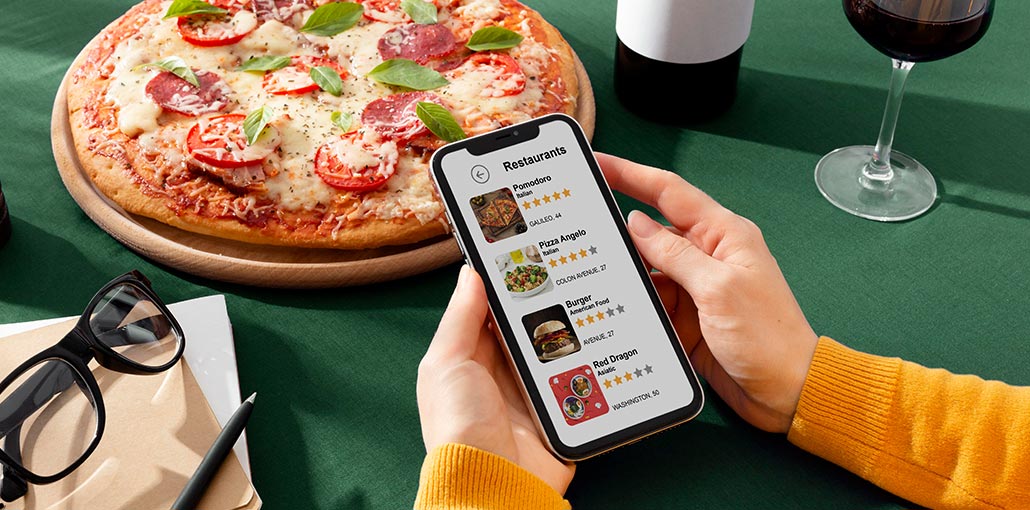In a world where convenience is king and consumers increasingly seek out hassle-free experiences, the restaurant industry has found itself at a pivotal crossroads. The advent of online ordering for restaurants has not only met this demand for convenience but has also revolutionized the dining landscape as we know it.
No longer confined to the traditional methods of phone orders or walk-ins, restaurants now have the opportunity to expand their reach, streamline operations, and offer an enhanced customer experience, all thanks to online ordering systems.
In this article, we will explore the key elements that make online ordering a game-changer for restaurants and offer actionable insights on how to maximize these benefits for long-term success.
The Pillars of Successful Online Ordering
Customer Convenience
In today’s fast-paced world, convenience is not just a luxury; it’s a necessity. Online ordering systems allow customers to browse menus, customize their orders, and even schedule pickups or deliveries, all from the comfort of their homes or offices. This level of convenience not only enhances the customer experience but also encourages repeat business.
Operational Efficiency
Efficiency is another cornerstone benefit of implementing an online ordering system. By automating the ordering process, restaurants can minimize human errors that often occur during phone orders. This streamlined approach frees up staff to focus on other essential tasks like food preparation and customer service, ultimately boosting operational efficiency.
Data-Driven Decisions
One of the latest tech trends in the food industry is the use of restaurant data analytics. Online ordering systems collect a wealth of data, from customer preferences to peak ordering times. This data can be analyzed to make informed decisions, such as optimizing menu items or adjusting staffing levels, thereby improving overall business performance.
Scalability and Adaptability
Whether you’re a small café or a large chain, online ordering systems can be scaled to meet your specific needs. As your business grows, the system can adapt to accommodate higher order volumes, more menu items, or additional locations, providing a flexible and adaptable solution.
Revenue Growth
Online ordering systems often lead to an increase in average order value compared to traditional ordering methods. Features like upselling prompts (“Would you like fries with that?”) and the ability to easily add extras can encourage customers to spend more, thereby boosting revenue.
Also read: 3 Proven Ways for Companies to Increase Revenue Growth
Brand Enhancement
A well-designed and efficient online ordering system can significantly elevate a restaurant’s brand image. It offers an additional touchpoint where customers interact with your brand, and if the experience is positive, it can lead to increased customer loyalty and better online reviews.
Maximizing the Benefits
User-Friendly Design
When considering an online ordering system, it’s crucial to prioritize user experience. A complicated or clunky interface can deter customers from using the service. Ensure that the system is mobile-responsive, easy to navigate, and allows for quick checkouts to maximize user engagement.
Promotions and Customer Loyalty
One of the most effective ways to promote your restaurant online is through targeted promotions and loyalty programs. Online ordering systems make it incredibly easy to roll out time-sensitive promotions or special offers. Coupled with the data collected, restaurants can offer personalized deals to individual customers or segments, thereby increasing sales and customer loyalty.
Real-Time Updates
The ability to make real-time updates to your menu or inventory is another significant advantage. Whether it’s adding a new seasonal dish or marking an item as sold out, these changes can be made instantly, enhancing the customer experience and reducing waste.
Social Media Integration
Incorporating social media sharing options within your online ordering system can amplify your restaurant’s online presence. Encourage satisfied customers to share their positive experiences or favorite dishes directly to their social media accounts. This not only serves as free advertising but also enhances customer engagement with your brand.
Feedback Mechanism
Implementing a feedback mechanism within the online ordering process can provide invaluable insights. Whether it’s a simple star rating or a more detailed review, customer feedback can help you identify areas for improvement and can also be used in marketing materials if the reviews are particularly positive.
Also read: 10 Best Customer Feedback Tools and Software
Overcoming Challenges
While online ordering systems offer numerous advantages, they also come with a set of challenges, such as initial setup costs and cybersecurity concerns. However, these challenges can often be mitigated by choosing a reliable service provider and investing in secure, high-quality systems.
Future Outlook
As technology continues to evolve, so will online ordering systems. From AI-driven personalized recommendations to integration with smart home devices, the future holds exciting possibilities for both restaurants and customers.
Moreover, as sustainability becomes a growing concern, future online ordering systems may incorporate features that allow customers to make eco-friendly choices, such as opting for minimal packaging or choosing locally sourced ingredients.
Additionally, as virtual and augmented reality technologies mature, we may see them integrated into online ordering experiences, offering a more interactive and immersive way to explore menu options before placing an order.
Summary
Online ordering for restaurants has become more than just a trend; it’s a fundamental shift in the way restaurants operate and interact with their customers. From operational efficiency and data-driven decisions to customer convenience and loyalty, the benefits are manifold. By staying abreast of the latest tech trends in the food industry and leveraging restaurant data analytics, restaurants can not only survive but thrive in this digital age.










Leave a comment